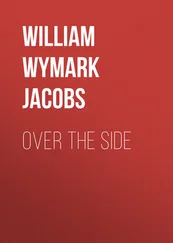William Trevor - A Bit on the Side
Здесь есть возможность читать онлайн «William Trevor - A Bit on the Side» весь текст электронной книги совершенно бесплатно (целиком полную версию без сокращений). В некоторых случаях можно слушать аудио, скачать через торрент в формате fb2 и присутствует краткое содержание. Год выпуска: 0101, Издательство: Penguin Publishing, Жанр: Старинная литература, на английском языке. Описание произведения, (предисловие) а так же отзывы посетителей доступны на портале библиотеки ЛибКат.
- Название:A Bit on the Side
- Автор:
- Издательство:Penguin Publishing
- Жанр:
- Год:0101
- ISBN:нет данных
- Рейтинг книги:5 / 5. Голосов: 1
-
Избранное:Добавить в избранное
- Отзывы:
-
Ваша оценка:
- 100
- 1
- 2
- 3
- 4
- 5
A Bit on the Side: краткое содержание, описание и аннотация
Предлагаем к чтению аннотацию, описание, краткое содержание или предисловие (зависит от того, что написал сам автор книги «A Bit on the Side»). Если вы не нашли необходимую информацию о книге — напишите в комментариях, мы постараемся отыскать её.
A Bit on the Side — читать онлайн бесплатно полную книгу (весь текст) целиком
Ниже представлен текст книги, разбитый по страницам. Система сохранения места последней прочитанной страницы, позволяет с удобством читать онлайн бесплатно книгу «A Bit on the Side», без необходимости каждый раз заново искать на чём Вы остановились. Поставьте закладку, и сможете в любой момент перейти на страницу, на которой закончили чтение.
Интервал:
Закладка:
*
The Rynnes lived in a grey, pebble-dashed bungalow at the crossroads, close to the petrol pumps they operated, across the main road from Quirke’s SuperValu. They were well-to-do: besides the petrol business, there was Rynne’s insurance agency, which he conducted from the bungalow. His wife attended to the custom at the pumps.
When Nuala rang the doorbell the Rynnes answered it together. They had a way of doing that when both of them were in; and they had a way of conducting their visitors no further than the hall until the purpose of the interruption was established. An insurance matter was usually enough to permit further access.
‘I was passing by,’ Nuala said, ‘on my way to the SuperValu.’
The Rynnes nodded. Their similar elongated features suggested that they might be brother and sister rather than man and wife. They both wore glasses, Rynne’s dark-rimmed and serious, his wife’s light and pale. They were a childless couple.
‘Is it insurance, Nuala?’ Rynne enquired.
She shook her head. She’d just looked in, she said, to see how they were getting on. ‘We often mention you,’ she said, taking a liberty with the facts.
‘Arrah, we’re not bad at all,’ Rynne said. ‘Game ball, would you say, Etty?’
‘Oh, I would, I would.’
The telephone rang and Rynne went to answer it. Nuala could hear him saying he was up to his eyes this morning. ‘Would tomorrow do?’ he suggested. ‘Would I come up in the evening?’
‘I’m sorry, Etty. You’re busy.’
‘It’s only I’m typing his proposals. God, it takes your time, and the pumps going too! Twenty-six blooming pages every one of them!’
In spite of its plaintive note, it was cheerful talk, relegating to its place beneath the surface what had been disguised when Rynne said they were game ball: neither Etty Rynne’s failure to become pregnant nor the emotional toll it had taken of both husband and wife was ever mentioned by them, but the fact and its consequences were well known in the neighbourhood. It was even said that dishearteningly fruitless enquiries had been made regarding the possibility of adoption.
‘Goodbye so, Etty.’ Nuala smiled and nodded before she left, the sympathy of a mother in her eyes. She would have liked to commiserate, but spoken words would have been tactless.
‘You’re all well above, Nuala?’
‘We are.’
‘Tell Corry I was asking for him.’
‘I will of course.’
Nuala wheeled her bicycle across the road and propped it against the side wall of Quirke’s SuperValu. While she was shopping – searching for the cheap lines with a sell-by date due, bundling the few items she could afford into a wire basket – she thought about the Rynnes. She saw them almost as visibly as she had ten minutes ago seen the faraway, sorrowful look in Etty’s pale-brown eyes; she heard the unvoiced disappointment that, in both husband and wife, dwindled into weariness. They had given up already, not knowing that they needn’t yet: all that, again, passed through Nuala’s reflections.
She went on thinking about the Rynnes as she rode away from the crossroads, up the long hill to her house. They were decent people, tied into themselves only because of their childlessness, because of what the longing had done to them. She remembered them as they’d been when first they’d married, the winter card parties they invited people to, Etty like a fashion-plate for each occasion, the stories Rynne brought back from his business travels.
‘Would it be wrong?’ Nuala whispered to herself, since there was no one there to hear. ‘Would it be against God?’
Unhooking her shopping bags from the handlebars when she reached the house, she asked herself the same questions again, her voice loud now in the stillness. If Corry did well with Mrs Falloway there wouldn’t be a need to wonder if it would be wrong. There wouldn’t even be a need – when years had gone by and they looked back to the bad time there’d been – to mention to Corry what had come into her mind. If Mrs Falloway came up trumps you’d make yourself forget it, which was something that could be done if you tried.
*
It was a white house for the most part, though grey and green in places where the colourwash was affected. Roches had lived at Mountroche for generations, until the family came to an end in the 1950s; Mrs Falloway had bought it cheaply after it had been empty for seventeen years.
Corry heard the bell jangling in the depths, but no one answered the summons. On the bus and as he rode across the bog he had worried in case Mrs Falloway had gone, in case years ago she had returned to England; when he jerked the bell-pull for the third time he worried again. Then there was a sound somewhere above where he stood. A window opened and Mrs Falloway’s voice called down.
‘Mrs Falloway?’ He stepped backwards on to the gravel in order to look up. ‘Mrs Falloway?’
‘Yes, it’s me. Hullo.’
‘Hullo, Mrs Falloway.’
He wouldn’t have recognized her and wondered if she recognized him after so long. He said who he was.
‘Oh, of course,’ Mrs Falloway said. ‘Wait a minute for me.’
When she opened her hall door she was welcoming. She smiled and held a hand out. ‘Come in, come in.’
They passed through a shabby hall and sat in a drawing-room that smelt of must. The cold ashes of a fire were partly covered with dead hydrangeas, deposited there from a vase. The room seemed choked with what littered its surfaces: newspapers and magazines, drawings, books face downward as if to mark a place, empty punnets, bric-á-brac in various stages of repair, a summer hat, a pile of clothes beside a work-basket.
‘You’ve come on a bicycle, Corry?’ Mrs Falloway said.
‘Only from Carrick. I got the bus to Carrick.’
‘My dear, you must be exhausted. Let me give you tea at the very least’
Mrs Falloway was gone for nearly twenty minutes, causing Corry some agitation when he thought of the three o’clock bus. He and Nuala had sat waiting in this room when they’d come to the house the first time, after Corry got the letter. They’d sat together on the sofa that was a receptacle for oddments now; the room had been tidier then, Mrs Falloway had been brisker. She’d talked all the time, full of her plans, a table laid in the big bow window to which she brought corned beef and salad, and toast that was moist with the butter she’d spread, and Kia-Ora orange, and tea and fruitcake.
‘Not much, I’m afraid,’ she said now, returning with a plate of biscuits, and cups and saucers and a teapot. The biscuits were decorated with a pink mush of marshmallow and raspberry jam.
Corry was glad of the tea, which was strong and hot. The biscuit he took had gone soft, but even so he liked it. Once in a while Nuala bought the same kind for the children.
‘What a lovely surprise!’ Mrs Falloway said.
‘I wondered were you still here.’
‘I’m here for ever now, I think.’
A dismal look had crept into her face, as if she knew why he had come. If she’d thought about it, she would have guessed long ago about the plight they were in. He wasn’t here to say it was her fault; he hoped she didn’t think that, because of course it wasn’t. All the blame was his.
‘I’m sorry we didn’t manage to pay anything back,’ he said.
‘You weren’t expected to, Corry.’
She was a tall woman, seeming fragile now. When she’d been younger her appearance had been almost intimidating: determination had influenced the set of her features and seemed to be there again in her wide mouth and saucer eyes, in her large hands as they gestured for attention. Swiftly her smile had become stern or insistent; now it was vaguely beseeching; her piled-up hair, which Corry remembered as black with a few strands of grey, had no black left in it. There was a tattered look about her that went with the room they were in.
Читать дальшеИнтервал:
Закладка:
Похожие книги на «A Bit on the Side»
Представляем Вашему вниманию похожие книги на «A Bit on the Side» списком для выбора. Мы отобрали схожую по названию и смыслу литературу в надежде предоставить читателям больше вариантов отыскать новые, интересные, ещё непрочитанные произведения.
Обсуждение, отзывы о книге «A Bit on the Side» и просто собственные мнения читателей. Оставьте ваши комментарии, напишите, что Вы думаете о произведении, его смысле или главных героях. Укажите что конкретно понравилось, а что нет, и почему Вы так считаете.










